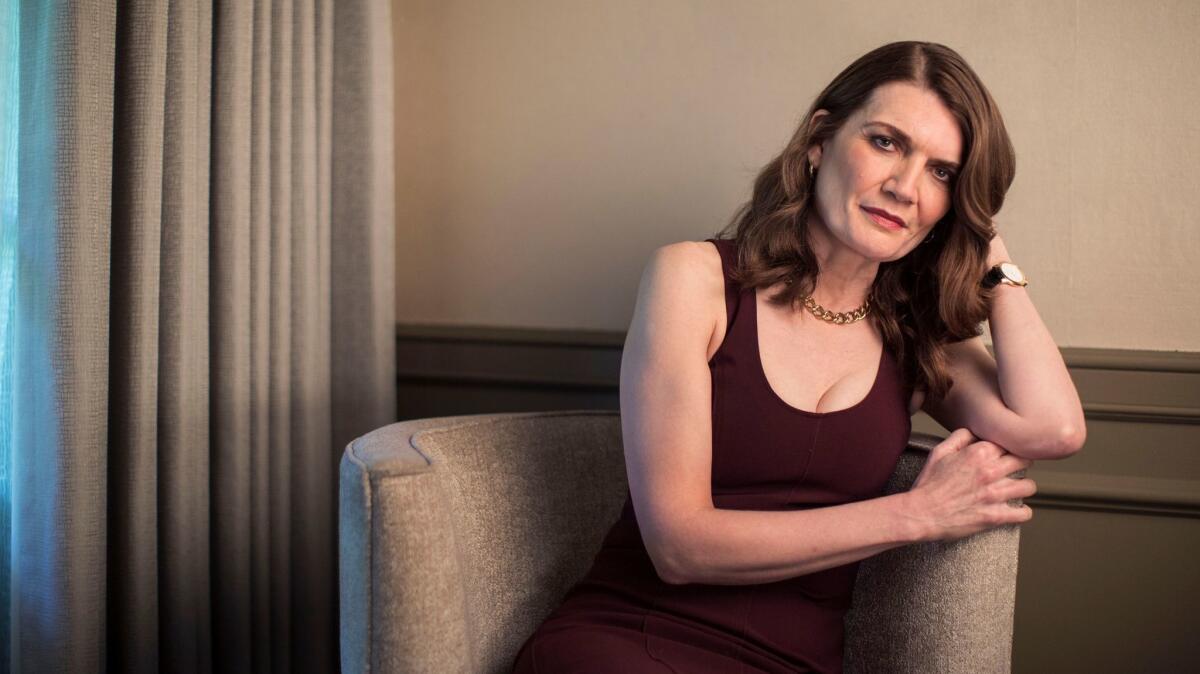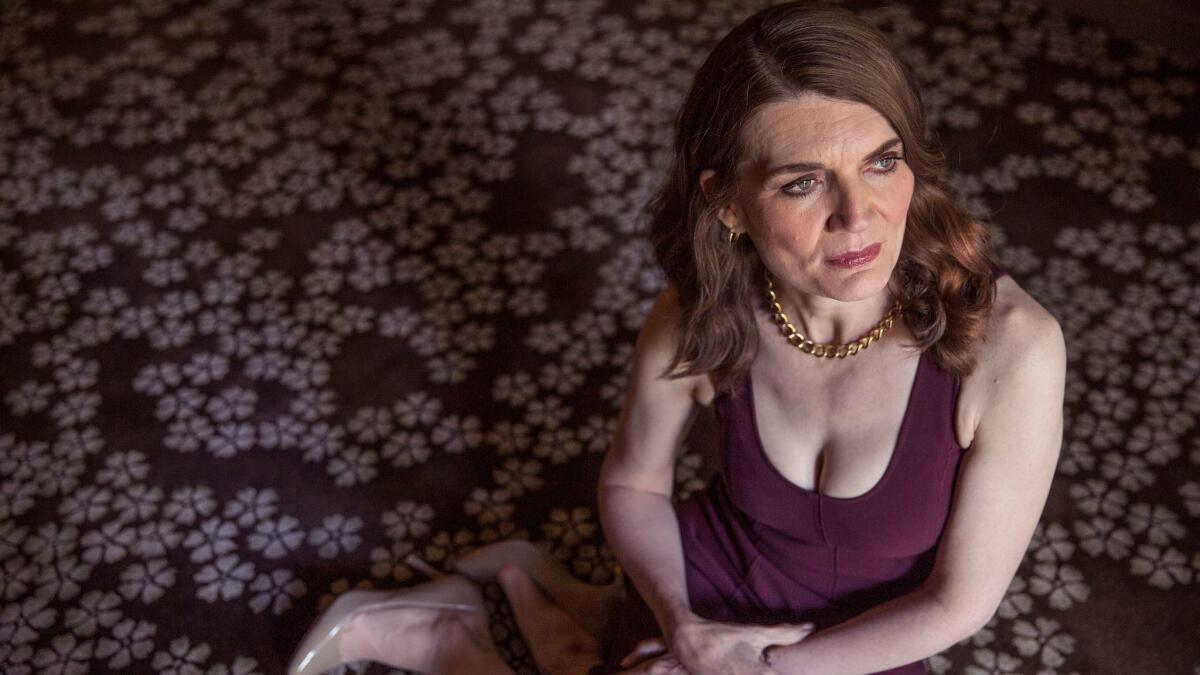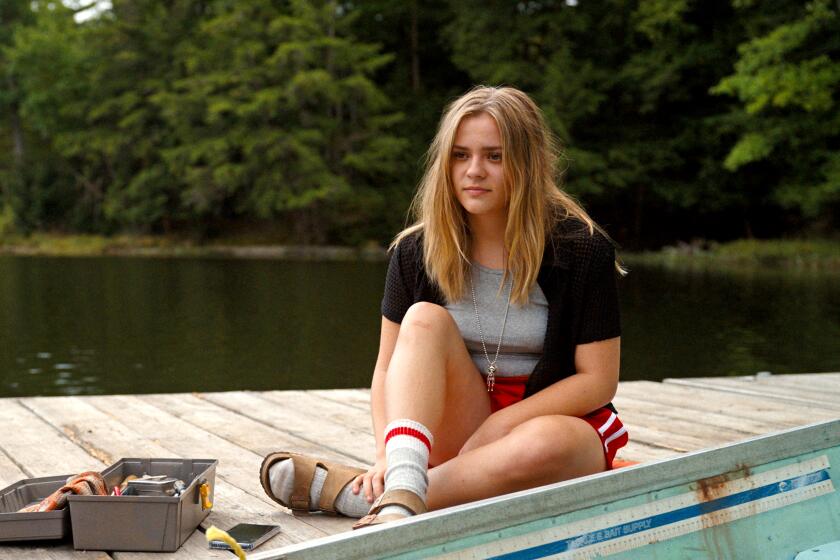Jeannette Walls was warned her memoir, ‘The Glass Castle,’ might be Hollywoodized on film; what happened was just the opposite

“Don’t let Hollywood get its hands on your story,” a writer friend advised me. “It’s too complicated. They’ll Hollywoodize it.”
This was shortly after my memoir, “The Glass Castle,” was published in 2005, and at the time I was flattered that anyone would want to turn my story into a movie — “Hollywoodized” or not.
It was, I had thought, a shameful story, one I’d hidden for years, a childhood filled with poverty, alcoholism and homelessness. But it was also one filled with joy, pride and deep love. One day, challenged by my mother to “just tell the truth,” I wrote the story.
I didn’t think people would understand.

I was so wrong. People understood, sometimes better than I did. And to this day I’m astonished — and very humbled — by the way that story has been embraced.
Soon after my memoir came out, some talented actors and producers were interested in trying to turn the story into a film — but they weren’t quite sure what to do with it. “Loved the book,” a producer told me. “Where’s the movie in it?”
One wanted to turn it into a romantic comedy, another wanted to play up the celebrity angle, most wanted to set it in the present, complete with cellphones and Twitter battles.
Years passed, producers came and went, and I accepted the idea that my story was stuck in development purgatory. It’s for the best, writer friends told me, and went on to describe the horrors of having their books turned into movies. Several called it the worst experience in their lives.
Then, a few years ago, Gil Netter, producer of the Oscar-winning “The Life of Pi,” optioned “The Glass Castle.” If he could make a movie about a tiger and an orangutan in a boat, I thought, maybe he could figure out how to turn my story into a movie.
Gil talked to a number of seasoned directors but eventually brought on the young, relatively unknown Destin Daniel Cretton.
My sister Lori, who had mixed feeling about being portrayed in a movie, watched Destin’s film “Short Term 12.” Then she called my mother and said, “Our story is in good hands.”
Destin and his co-writer, Andrew Lanham, found the movie, going through my messy story countless times, carving out its spine, focusing on the relationship between a young woman (that would be me) and her loving, destructive, damaged father. Yes, they altered details, telescoped a few scenes, fleshed out a minor character into a more significant one, but always with my input and always with a passion for authenticity.
And instead of resorting to stereotypes of wacky squatters and crazy alcoholics, they captured the complexities of people like my mother and father who, for all their faults and demons, were also creative and intelligent with pride and dreams.
Destin visited me, read my father’s journals and met my mother. Mom does not fit a lot of people’s preconceptions of what a mother should be, and whether you like her is for me a litmus test of whether you’re willing to accept people for who and what they are.
Destin not only liked Mom, he completely understood her.
And she adored him. “We got lucky,” she said. “He’s Hawaiian. They’re very nonjudgmental.”
Destin noticed the oil paint on Mom’s hands, a hazard of being an artist, and he took a picture of them so he could get it right for the film. He went through the hundreds of paintings she has stored in the two sheds behind her cottage, and he liked them so much he decided to include them in the movie. He even got Mom to paint a special portrait, based on my father, but with the face of Woody Harrelson, who plays Dad.
Destin also went to Welch, the small town in southern West Virginia where I’d spent my teen years. He shot a scene at the local newspaper where I’d worked and persuaded the local high school football team to play a staged game, complete with local cheerleaders wearing period uniforms they’d made themselves.
Destin’s passion for authenticity was shared by the entire cast and crew. Joel West, the film’s composer, wrote a song inspired by the poetry that my father had written while homeless on the streets of New York. The wardrobe team, Joy Cretton and Mirren Gordon-Crozier, visited me and left with a suitcase full of my 1980s power suits. Brie Larson, who plays me, actually wore a couple of them in the movie.
Woody Harrelson and Naomi Watts, who plays Mom, studied an old videotape of my parents. Naomi at first wondered if my mother saw herself as a victim, but voice coach Jerome Butler also heard the tapes. Pay attention to her tone, he told her; this is a woman who loves life.
After listening to tapes of me, Brie Larson said with a laugh, “You say ‘like’ five different ways.” Watching her on the set, I once chuckled at the way she slung her purse over her shoulder, then I realized, “Oh, my gosh, I do that.”
Brie Larson captured so many of the other things that I did — and do — some of them not entirely appealing, most important, the way that I had tried so hard to cut myself off from my past, to feel nothing. The portrait isn’t always flattering, but it’s accurate. And to be understood is so much more important than being flattered.
That’s something Mom understood back when she told me to tell the truth. I held my breath when I first showed her the trailer. “He’s just like Rex! Just like him!” she said, watching Woody Harrelson drive the family’s beater of a car off the road and through the desert. “Oh, my,” she whispered when she saw Naomi Watts laughing off Dad’s antics. “She’s just like me.”
“I hope your movie is going to address some of the issues of poverty,” a woman told me at a recent fundraiser for the homeless, “and that it will provide some answers.”
I don’t know if the movie provides answers, any more than my book does. It’s just my family’s story. And it’s my hope that by making such an effort to get at the truth, this film will help people to understand all the other families out there like mine.
And the truth is in the details.
Sharon Seymour, the production designer, emailed me from the set when they were re-creating the garbage pit in front of our shack in West Virginia. “We need to come up with a pretty significant amount of trash. What were you guys putting in it? Food garbage? Cans? Brown paper bags of trash? I imagine you didn’t have trash bags.”
When the filmmakers are worried about getting the trash right, you know they’re not Hollywoodizing your story.
ALSO
‘It’s Not Dark Yet’ is a powerful vision of a filmmaker’s battle with ALS
Watch the harrowing first trailer for Angelina Jolie’s ‘First They Killed My Father’
Sony’s long-awaited ‘Dark Tower’ may unseat ‘Dunkirk’ with $25-million box-office premiere
More to Read
Only good movies
Get the Indie Focus newsletter, Mark Olsen's weekly guide to the world of cinema.
You may occasionally receive promotional content from the Los Angeles Times.








